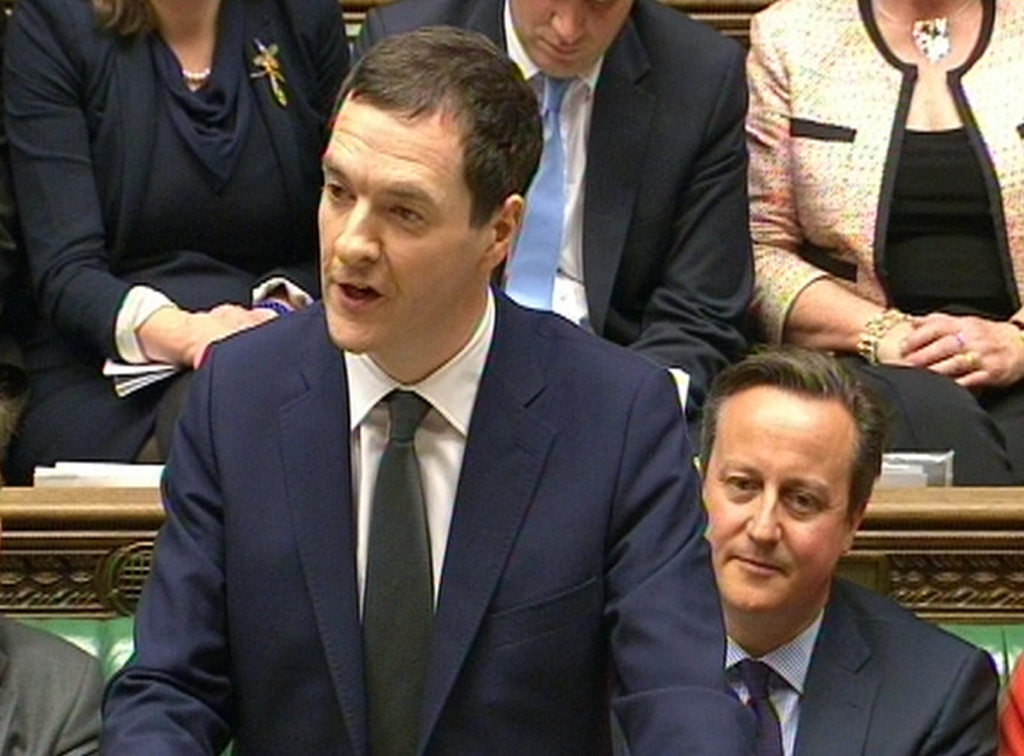-
Tips for becoming a good boxer - November 6, 2020
-
7 expert tips for making your hens night a memorable one - November 6, 2020
-
5 reasons to host your Christmas party on a cruise boat - November 6, 2020
-
What to do when you’re charged with a crime - November 6, 2020
-
Should you get one or multiple dogs? Here’s all you need to know - November 3, 2020
-
A Guide: How to Build Your Very Own Magic Mirror - February 14, 2019
-
Our Top Inspirational Baseball Stars - November 24, 2018
-
Five Tech Tools That Will Help You Turn Your Blog into a Business - November 24, 2018
-
How to Indulge on Vacation without Expanding Your Waist - November 9, 2018
-
5 Strategies for Businesses to Appeal to Today’s Increasingly Mobile-Crazed Customers - November 9, 2018
Osborne pulls back from cutting welfare benefits
George Osborne said improvements in public finances made it possible to back away from the unpopular credit cuts his government had proposed earlier.
Advertisement
A Treasury spokesperson said the country’s improved financial situation meant that the Chancellor was in a position to mitigate against tax credit changes, which the Institute for Fiscal Studies had previously estimated would leave families £1,300 worse off.
The thinktank warned that there was a 50-50 chance of the chancellor being forced to revisit his plans.
Chancellor of the Exchequer George Osborne said the United Kingdom economy will grow by 2.4% this year and in 2016 as he set out his spending priorities for the next five years.
Paul Johnson, the IFS chief executive, said: “He really is cutting spending on non-pension benefits to its lowest level – relative to national income – for 30 years”. These have prompted the government to constrain its spending for years.
There was a deafening roar from the Tory benches as he announced police forces would escape Whitehall cuts and that funding would be protected in real terms.
“This is not the end of austerity”, Johnson added.
The other issue surrounded the NHS, particularly cuts to student nurse bursaries which could have a further impact on already struggling staffing numbers.
About 2.6million working families will still be stripped of £1600 a year from their household budgets despite the Chancellor’s decision to abandon tax credit cuts in his Autumn Statement.
The think tank’s director Torsten Bell said the changes announced in the July Budget and yesterday’s Autumn Statement risked undermining universal credit, the Government’s flagship welfare reform programme.
The IFS also pointed out that Osborne’s measures amounted to a “tax-raising budget” with the new apprenticeship levy, changes to council tax and new stamp duty rules for second homes and buy-to-let properties.
The planned consolidation of a number of benefits into a single Universal Credit “will now involve 2.6 million working families being an average of £1,600 a year worse off than they would have been under the current system, while 1.9 million will be £1,400 a year better-off”, he said.
Chris Philp, Conservative MP for Croydon South, voted in favour of the cuts after they were first revealed in July’s budget.
Sutton Council leader Ruth Dombey said: “Unprecedented Government cuts to our funding before today’s announcement had meant that we were having to make £74m of savings to our annual budget between 2010 and 2019”.
The IFS also highlighted the impending cuts to universal credit. He was big enough to come to the chamber and say that yes, it was wrong.
Advertisement
Britain’s welfare system for low-paid workers is being revamped and tax credits are due to be largely phased out by 2020 and replaced with a new system called universal credit and more generous minimum wage rates.





























